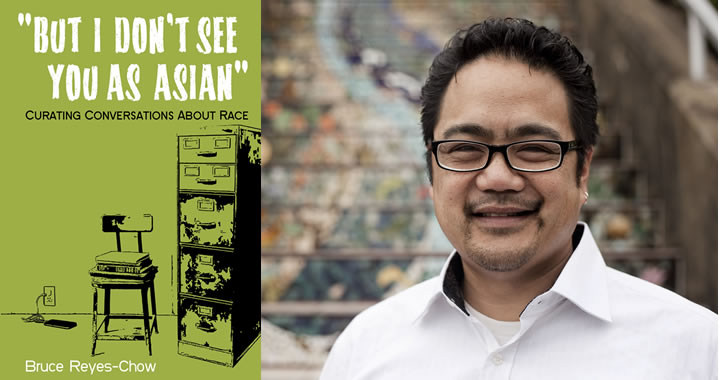Editor’s Note: This post is part of the Red Letter Book Club, featuring Bruce Reyes-Chow’s latest book: But I Don’t See You as Asian: Curating Conversations About Race.
Too often conversations about race never happen. Americans will talk about or around race, much like we did after the non-guilty verdict came down in the shooting death of Trayvon Martin. Tweets, Facebook comments, and blog posts go up at a furious pace, but there are too few opportunities for people to slow down, sit down and talk about the gap of experience, language and understanding outside of a 24-7 news cycle. By the time this review goes live, George Zimmerman’s not guilty verdict will be old news.
Too bad we didn’t have Bruce Reyes-Chow’s book a few weeks ago. Too bad the jury, the judge, the commentators, and the lawyers in the Zimmerman case didn’t have the book as a reference point and as a guide for conversation and culture.
But now the rest of us have no excuse. We should be prepared to dialogue at a deeper level the next time race takes center stage because Reyes-Chow gives us an accessible book that can serve individuals looking for honest, down-to-earth talk about race and work for groups hoping for a guide to deeper conversations across the racial divide.
Reyes-Chow’s chapters are built around phrases that can catch people of color and White majority culture people off guard because the former often are left hurt, confused, annoyed, angry, or offended and responsible for managing both unknown intentions of the latter. The latter often don’t see where there was even a chance for misunderstanding. These landmines are just under the surface of a “safe” conversation, and as someone who has been on the receiving end of too many “Where are you really from?” and “ Your English is really good” comments, you just don’t know what kind of explosion is waiting. Sometimes it’s a pained, fake smile. Sometimes it’s a full-on offensive. I’m thinking of carrying this book around in my digital cloud so that I can pull out the respective chapter and read it with the offender.
Yes, offender because words offend, even if the intention isn’t to do so. And that is really why I appreciate Reyes-Chow’s voice so much. He speaks from that middle place of neither black nor White, Christian but not Christian-ese. He affirms some of my experiences as an Asian American Evangelical Christian who has been told to forgive hurtful, racist words. I have been told that in Christ we are One and that my race does not matter, that I care too much about race and differences, but even in the Trinity there are distinctions between Father, Son and Holy Spirit – unity in diversity. When I am told by a predominantly White-lead North American Church that my race does not matter, it is a version of being asked, “Where are you really from?” and then expected to make myself at home by adjusting to the ways of the host.
Thankfully, Reyes-Chow acknowledges what so many of us people of color have experienced – our feelings are trumped by the majority culture person’s fears of being called a racist. “Free speech does not protect people from the consequences of their words; neither does merely claiming a reality make that reality true, ” p. 142.
As a Christian author, words are the way in which God speaks to me and I communicate God’s love and transformative power to my audience. Our words, meaning and context are shaped by our experiences, which are all shaded and shaped by the world around us. That world nor the words we use with one another are not in a vacuum but affected deeply by the brokenness and gift of race and diversity. Reyes-Chow helps us understand the power dynamic of the words we use with one another across race.
—-
Kathy Khang is a regional multiethnic director for InterVarsity Christian Fellowship/USA, overseeing multiethnic training and ministry development in IL and IN. She is one of the authors of More Than Serving Tea (IVP, 2006), and continues to blog at www.morethanservingtea.wordpress.com and Sojourners about life as a Christian Asian American married woman with children (or whatever gets her riled up or collides with her passions) when really she should be sleeping.
Kathy and Peter Chang have been married for 20 years and live in the north suburbs of Chicago. They are honored to be the parents of Bethany, Corban and Elias, who will one day take over the world.
Read more reviews, an interview with Bruce, an excerpt from the book, and find out more about But I Don’t See You as Asian: Curating Conversations About Race in the Red Letter Book Club


